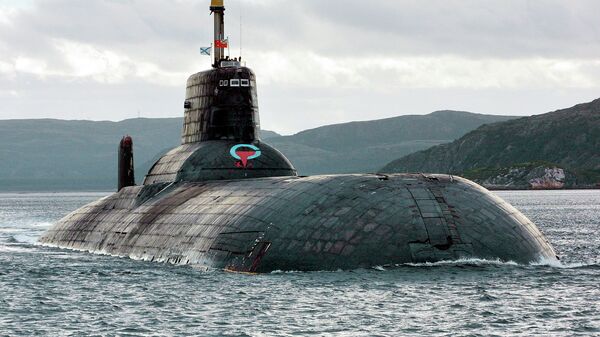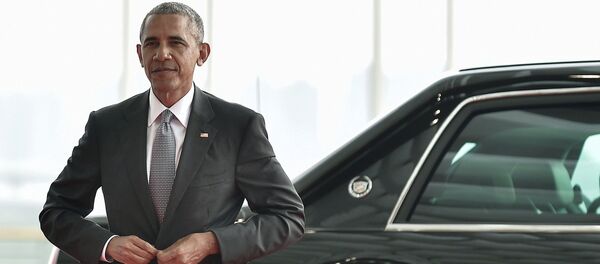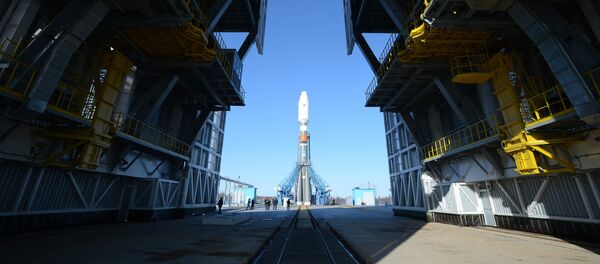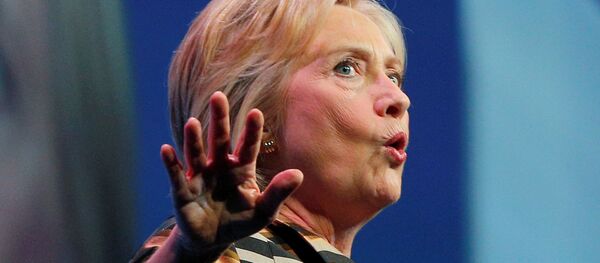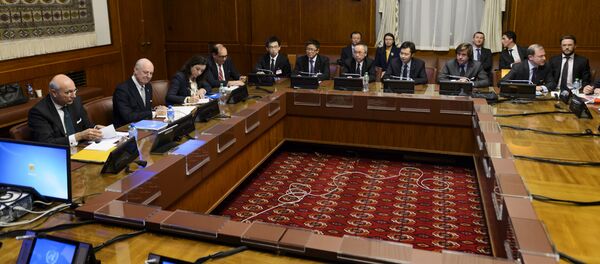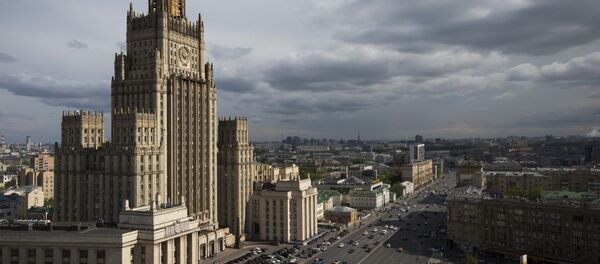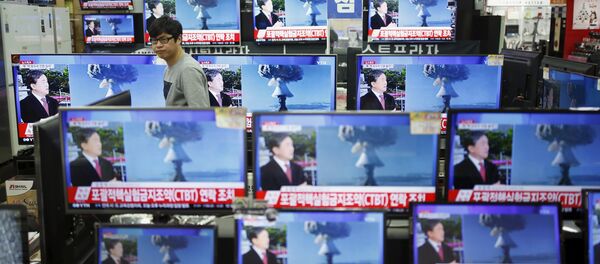Nuclear-armed states party to the NPT gathered for their seventh conference in Washington on Wednesday and Thursday, discussing disarmament, nonproliferation, confidence building measures, transparency and the peaceful use of nuclear energy.
The five countries, known as the P5 group, include Russia, the United States, the United Kingdom, France and China. The international NPT treaty took effect in 1970 and has been ratified by 191 governments.
Russian, US Doctrines
The document envisions the hypothetical use of nuclear weapons in two cases, one being an attack against Russia with the use of nuclear weapons and another being large-scale aggression with the use of conventional weapons that would threaten the country’s existence, Leontyev explained.
"Therefore, the possibility of any preventive offensive actions with the use of the nuclear weapons threat is not implied," he added.
The comments come as a rebuke to several claims previously made by NATO officials with regard to Russia allegedly modernizing its nuclear forces.
The nonproliferation official noted the difference between nuclear weapons clauses of the Russian and the US doctrines, describing the US military doctrine as too broad in justifying use of nuclear weapons for almost all purposes.
“We noted that the US nuclear doctrine is practically oversized, envisioning use of nuclear weapons for protection of vital interest, which could include almost all purposes,” Leontyev said.
These interests can be anything defined as such by the United States, including the global economy and international laws, he emphasized.
Russia will use the upcoming P5 meeting on October 6 to raise issues including the United States modernizing its tactical warheads and deploying its missile defense systems in Europe as well as developing the Prompt Global Strike conventional airstrike system, according to the official.
"We shall enquire as to why the US tactical weapons in Europe are modernized, and within the framework of which scenarios they are intended to be used… For us this is an opportunity to raise issues at P5 of the situation related to the development of US missile defense, Prompt Global Strike, deployment of NATO potentials near our borders, and so on," Leontyev said.
In May, the US Aegis Ashore missile defense system was officially inaugurated at a military base in Romania, and the construction of a similar complex also begun in Poland. The systems are planned to form part of the European missile shield and be armed with land-based Standard Missile-3 (SM-3) interceptors. Russia has repeatedly objected to the construction of the shield as it is a threat to its strategic deterrent.
Disarmament
At the conference, P5 group members reaffirmed their stance against any attempts to force nuclear states into getting rid of their stockpiles without taking the global security situation of the day into account, according to Leontyev.
"The most useful is probably the reaffirmation of common understanding of the counterproductivity of attempts to impose on countries that have nuclear weapons some schemes to eliminate them, not taking into the account strategic realities and other aspects of international security," he said.
Russia and the United States, which together hold almost 90 percent of the world's operational nuclear arsenals, are bound by the New Strategic Arms Reduction Treaty (START) which lasts until 2021 and stipulates that both sides cut their stockpiles by half.
Russia did not receive any official initiatives from the United States on renewing the treaty, but will consider them should Washington offer them, Leontyev said.
“There were no official initiatives. We shall consider them if we receive them,” he said.
Broader Nonproliferation
Guidelines to include non-P5 nuclear states in talks on reducing nuclear weapon proliferation should be worked out, the official stressed.
Current non-NPT declared nuclear powers are India, Pakistan and North Korea, while Israel, which is suspected of possessing nuclear weapons, has not declared itself a nuclear power. A number of countries, including Belgium, Germany, Italy, the Netherlands and Turkey are covered by the NATO nuclear weapons sharing program, while South Africa formerly possessed several nuclear weapons before destroying them in the 1990s.
"We believe… that it is necessary to elaborate some guidelines which would allow to include not only countries who are members of the P5, but also all countries with military nuclear potential to this process," Leontyev said.
October
The upcoming P5 talks should also be broader and include political as well as military specialists as Russia plans to bring up a lot of issues, Leontyev stated.
According to the official, Russia plans to bring up a number of issues related to US missile defense, nuclear weapons in Europe and NATO deployment in October.
"It is clear that the discussions of these issues require the presence of not only our political specialists, but also the military ones," he said.
Sanctions
Sanctions imposed against Russia by the United States in the wake of Crimea's reunification with Russia are harming cooperation in the control of weapons, the official stressed.
Relations between Moscow and Washington soured in 2014 after the overwhelming majority of the Crimean population voted to leave Ukraine for Russia, prompting the United States, the European Union and their allies to impose sanctions on Russia.
“They [Washington] seemingly say that they are ready [to discuss arms control]. But how can defense issues be discussed without military personnel, amid sanctions imposed against the majority of our defense enterprises… We can speak to our US vis-a-vis, but neither they nor we are technical experts,” Leontyev said.
Chemical Weapons
Regarding chemical weapons proliferation, Leontyev reminded of a Russian-proposed convention aimed at preventing the weapons from getting into the hands of terrorists.
In August, Russia presented an updated draft of its convention on the fight against biological and chemical terrorism to the UN Disarmament Conference in Geneva.
"We believe that this convention could be timely and relevant. Especially now when we see real cases of terrorist groups using chemical weapons," Leontyev said.
The UN Security Council's Resolution 1540 of 2004, which bounds member states to refrain from supporting non-state actors in production, proliferation and use of nuclear, chemical and biological weapons, is "insufficient" as the threat of chemical and biological terrorism is sweeping and crossing borders and the urgent action is needed, according to the diplomat.
On August 24, the International Joint Investigation Mechanism of the United Nations and the Organization for the Prohibition of Chemical Weapons (OPCW) released the results of a joint probe into chemical weapons attacks in Syria in 2014 and 2015. The authors of the report confirmed that at least one attack had been organized by Daesh.
In August, the Russian Center for Syrian Reconciliation reported that militants from a "moderate opposition" armed group had organized a poisonous gas attack in Syria's besieged city of Aleppo.

